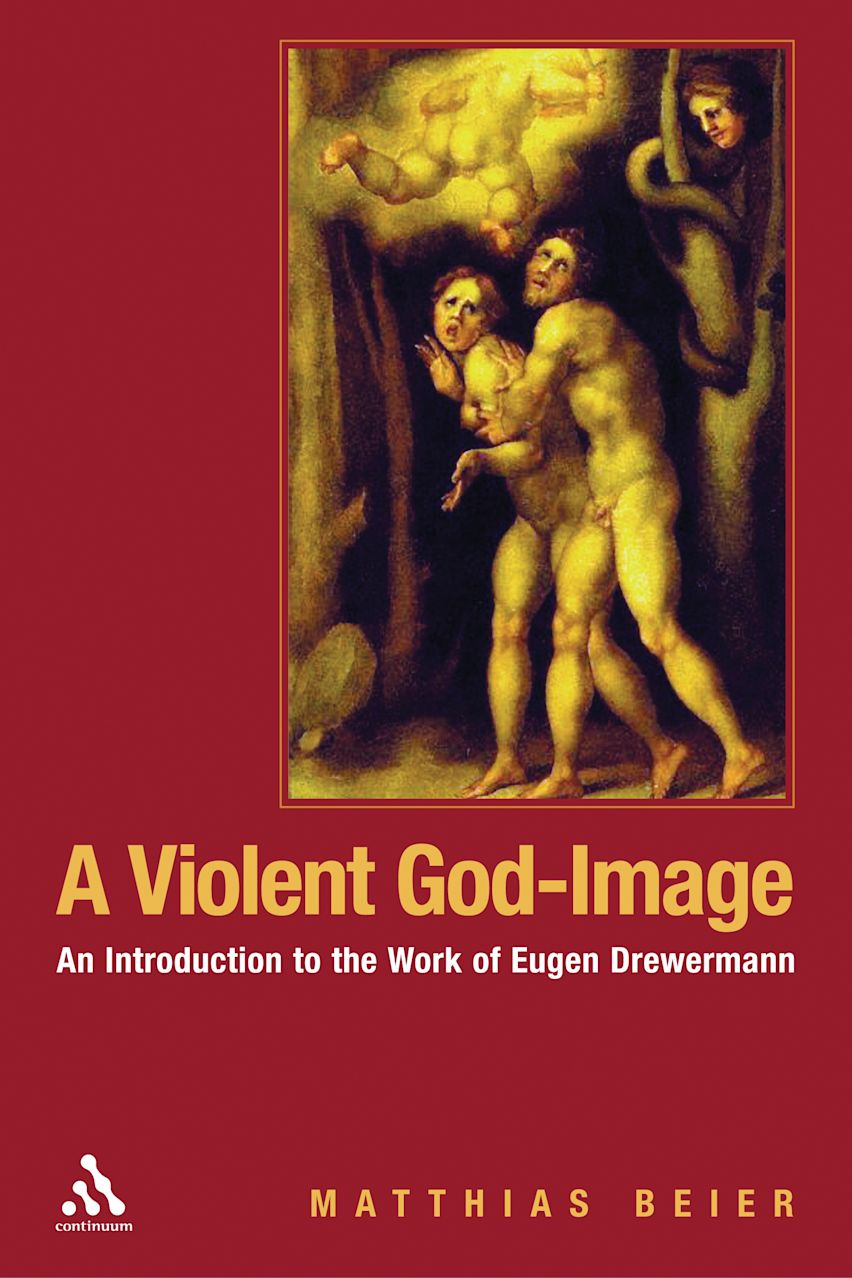A Violent God-Image, by Dr. Matthias Beier, exposes the pervasive misinterpretation of belief in God through a lens of fear and scarcity. It analyzes the millennia-old harmful misuses of the so-called stories of paradise and fall in Gen. 2-3, which have been used throughout history to oppress and demonize individuals, groups, and nations in the name of God. It offers an empowering and liberating alternative reading of these texts. The book outlines how and why Christianity, in contrast to its professed peaceful mission, has inadvertently unleashed the most horrendous wars and has provided the ideological backbone for systematically destroying nature and animal species. It debunks the sadomasochistic use of the Cross of Jesus to make people feel guilty and burdened and offers a non-masochistic, nonviolent interpretation of the life and death of Jesus. Finally, it analyzes the pervasive unhealthy clergy mentality of traditional Christianity and offers alternative visions for living a fulfilled spiritual life within a healing and healthy community characterized by trusting relationships. The ideas presented summarize for an English audience key ideas from the ground-breaking work of Eugen Drewermann, who argues that Christianity is, at heart, a therapeutic religion, as evidenced by the life of Jesus, and should be reimagined by churches everywhere in such a way. Drewermann is also Europe’s most prominent peace activist over the past 40 years.
Praise for A Violent God-Image
"Drewermann's contribution is indispensable for two reasons: because he takes mental/spiritual suffering seriously and works for the liberation of those who, 'crippled by fear all their lives, are prevented from risking themselves.' Secondly, because he does something for the world-wide church that Latin-American liberation theologians cannot achieve but need: he challenges the mega institution's attempt to stabilize power by means of fear and names authoritarian religion 'a form of violence.'" Dorothee Sölle, author of The Silent Cry and Suffering
"A fascinating book! Beier brings to an English-speaking audience a profound and challenging Christian voice from Germany. In his homeland that voice has elicited the twin responses of excitement from a reading public that made his works bestsellers and of fear from his church’s hierarchy that sought to silence him. The book will be welcomed by those who labor on that frontier where faith and life collide." John Shelby Spong, author of A New Christianity for a New World
"Thank you, Matthias Beier, for introducing Eugen Drewermann to American pastoral theologians and pastoral psychotherapists. A Violent God-Image is a gift to psychotherapists and should be added to our pastoral theology canon. Drawing upon his depth of personal experience and brilliant scholarship, Eugen Drewermann also understands violence through the lens of depth psychology. His insights about the biological and psychological origins of violence can be directly applied to clinical practice. However, A Violent God-Image deserves a wider audience. The world is desperate for Drewermann’s wisdom in this fearful time." Margaret Kornfeld, Past President, American Association of Pastoral Counselors, author of Cultivating Wholeness: A Guide to Care and Counseling in Faith Communities
"This first full-length volume in English on the thought of Eugen Drewermann is a welcome and long-overdue introduction to the groundbreaking work of the most prolific theological writer in the German language over the past twenty years. We are indebted to Beier for undertaking a translation task only a native German speaker could accomplish, given the complexity and technicality of Drewermann’s prose." Review of Biblical Literature
"A Violent God-image is the first theological treatment I have seen that takes the integration of psychoanalysis and religion seriously. The result is a profoundly more human cast to otherwise abstract theological propositions.... Drewermann’s approach ... opens the way to a potential new era of theological reflection centered on the integration of theological principles and doctrines with fundamental human concerns and psychic realities.... I would recommend Beier’s treatise for its inherent interest and for its potential for stimulating more psychologically meaningful theological reflection." W. W. Meissner, author of Psychoanalysis and Religious Experience and Treatment of Patients in the Borderline Spectrum
"Our time has known two thinkers of dazzling brilliance: the German Eugen Drewermann and the French René Girard. Girard’s thought has penetrated numerous fields: literary criticism, psychoanalysis, economics, and, not least, theology. Though a sensation in Europe, Drewermann is virtually unknown in America, due to the lack of translation. Matthias Beier has done the next best thing: he has provided a condensation and commentary that makes Drewermann’s thought accessible, in hopes that some enterprising press will see to the publication of more by this seminal thinker." Walter Wink, author of The Human Being: Jesus and the Enigma of the Son of Man
"Eugen Drewermann, a German Scholar, whose difficult but very profound work has been a sensation in Europe but which has been slow to arrive on the American intellectual scene, has been compared to the French philosopher Rene Girard, whose theories on the nature and causes of violence have influenced nearly every field of the humanities. Drewemann's thought, which also deals with the most important issues of our time, violence and it's relation to religion, is finally made accessible to American readers by Matthias Beier in his book, "A Violent God Image: An Introduction to the Work of Eugen Drewermann" published by Continuum in 2004. Beier draws from his encyclopedic knowledge of Drewermann's work in biblical studies, theology, depth psychology, existential philosophy and pastoral practice to present the synthesis of Drewermann's thought on the subject of Genesis and Christianity's violent God-image and how that God image functions as a cause and legitimation of personal pathology, social violence, war and destruction of nature. Beier's synthesis is scrupulously faithful to Drewermann's thought and includes extensive translations from original text. This is a deeply thought-provoking book which challenged our understanding of original sin, the crucifixion of Jesus, church authority and the political and cultural givens which control so much of our thought and behavior in society and church." -Professor Sandra Schneiders, Professor Emerita of New Testament Studies and Christian Spirituality, Santa Clara University



